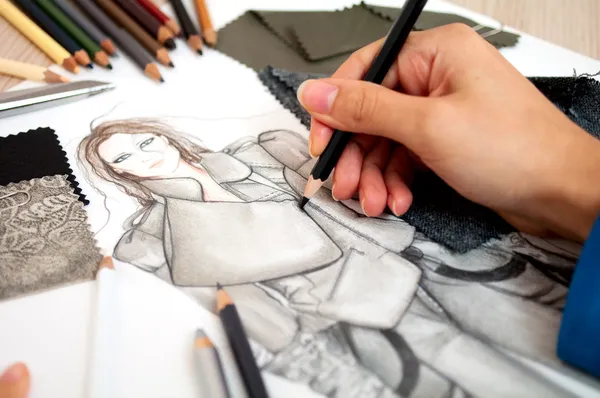- (+91) 7399001009
- support@careertoday.info







Have you got passion to know about infrastructure- roads, building, bridges, or are inclined towards software development? Do you dream about travelling in space? Do you have a passion for industrial or automotive designs? If you are in school and inclined towards all these domains, then Engineering could be the road ahead for you. While pursuing engineering, on one hand aspirants can give full play to their potential and on the other they may also draw lucrative salaries. However, for that you need to know for certain how you can pursue engineering, which all entrance exams you need to take or which all engineering institutes are known for providing quality education.
Who can apply?
If you aspire to become an engineer, then you need to fulfill certain eligibility criteria. It includes academic qualification, age limit, domicile requirement etc. In general, the aspirants must have passed class 12 with Physics, Chemistry and Mathematics as compulsory subjects to apply for these entrance tests. For various national and state- level engineering entrance exams, the conducting authorities announce specific eligibility requirements which may differ from each other, including requirement of different level of percentage marks in class 12.
Popular Engineering Branches
Popular Engineering Branches Aeronautical, Automobile, Architecture, Agriculture, Biomedical, Biotechnology, Chemical, Civil, Computer Science, Electronics & Communication, Electrical and Electronics, Environmental, Fashion Technology, Food Technology, Information Technology, Mechanical, Mining, Maritime, Metallurgy, Material Science, Plastics & Polymer, Oil & Petroleum, Industrial & Production, Textile etc

LAW PROGRAMMES- A RANGE OF DISCIPLINES AND AN EVERGREEN PROFESSION
Being part of the connected economy and society, compliance is increasingly assuming a central position in the way we conduct our lives. And so law becomes its prime motivator and defender. The rise in the profile of law and lawyers concomitant with the remunerative possibilities has resulted in a renewed interest in the study and practice of law.
This is reflected in the sudden growth of the number of legal education providers in the country. In addition to the rise in the number of National Law Schools set up by the Bar Council, and at times also by the respective state governments; many private universities are also increasingly being set up to offer 5-year and 3-year law programmes. Also, on offer are integrated programmes like BBA LLB and B.Tech LLB, offering specialised techno-commercial pathways to aspiring lawyers. Domains like Constitutional and Administrative Law, Criminal Law, Contract Law, Labour Law, Company Law, Tort Law, Property Law, Tax Law, Trust Law and Family Law or Personal Law etc.
It appears that the future of legal education in India is bright and promising. But behind the façade of good schools, the status of legal education in the country is a matter of concern.
Career in Law
Law as a profession is becoming an ideal choice of many youngsters. Unlike the earlier days, the opportunities available to a top law school graduate are phenomenal. With the liberalization of India’s economy, there exists a huge demand for highly skilled lawyers adept in the areas of mergers and acquisitions, banking and finance, infrastructure contracts, debt restructuring, FEMA regulations, IPRS, corporate governance, private equity deals, WTO law etc.
Exploring New Avenues
As a profession, law is not limited to the Legislature, Executive and the Judiciary, Liberalization has opened up newer avenues and brought about vibrant changes in laws covering the whole range of financial activities, including Industry, Media, Intellectual Property Rights, Information Technology, Data Protection etc. Moreover, global spend on the legal services has increased dramatically in the last few years, impacting recruitment trends as well.
Skills Required
The skills can be honed as one grows up in the profession. However, a good lawyer should possess the following
• Quick responsive
• Good orator and keen listener
• Flexible but attentive mind
• Logical reasoning capability
• Emotional Intelligence
Job Profiles
The opportunities to lawyer in India are huge. Unlike in the past, the fresh graduates from law schools today have an unprecedented range of options. Law firms and in-house legal departments of corporate houses still remain the top choice of the graduates; private sector litigation has also seen steady growth. Additionally, LPO have contributed with opportunities of global exposure to fresh law graduates. One can also step into the profession by working as an associate to a prominent lawyer, where the fresher may learn new skills and further can have opportunity to work on different cases on behalf of the big-gun. Law firms and LPOs induct associates and corporate houses induct legal executives. Specialized agencies such as IP, research and arbitration consultancies also recruit law graduates. With the growth of a number of law schools across India, a strong interest in the academic sector for law graduates as well as transferability of skills across disciplines has been observed.
Overview of Indian Legal Education
The Indian Law Schools can be classified under three broad categories-
National Law Universities (NLUs)
National Law Universities are specialized universities in India enjoying an autonomous status in most of the things they do such as conducting exam, designing curriculam, offering specialised law programmes, including five-year integrated programmes, and other postgraduate programmes too.
State Law Universities and Colleges
The law colleges are recognized by the State Universities and BCI. Quite a number of these law universities and colleges offer the traditional three year law programmes.
Private Colleges
These are law institutions recognized by BCI and enjoy the privileges of a private institution. Majority of these institutions offer the 5-year law programmes.
Courses
In India, a law aspirant has two gateways to pursue undergraduate law programmes. The first career path begins at 10+2 level through which they can pursue 5 year law programmes and the other through 3 year law programme which needs a graduate degree. After acquiring the undergraduate degree in law, one many further go for postgraduate degrees including LLM and PhD.
Five- year integrated courses
Candidates can pursue five-year integrated law course after passing their Senior Secondary or 12th board examination. A number of law colleges offer these UG law courses under various programmes namely BA LLB (Hons.), B.Com LLB (Hons.) and B.Sc LLB (Hons.)
Three-year LLB courses
The traditional law course offered at various universities is a 3-year regular programme awarding L.L.B degree. The candidate needs a graduation in any discipline to pursue the programme.
One Year LLM
The course offers one year Postgraduate Degree programme in law. The candidates pursuing LLM need to be LLB graduates.
Two-year LLM
This two-year Postgraduate Programme is offered by many law colleges in India.
PhD
This is Post Master’s Degree programme offered at select institutes in India. On completion of the degree, the students are awarded a PhD in the specialised law programme.

India is a largely agrarian economy. The impact of agriculture is not only on the production of food grains, vegetables and fruits, but also on agriculture-dependent industries. A good monsoon drives the SENSEX up raging as a bull, while floods or other such calamities bring it to a grinding halt. In recent years, the Indian state of agriculture has improved a lot and has started using state-of-the-art farming methodology; genetically improved seeds and crossbred varieties for high yield.
India is a largely agrarian economy. The impact of agriculture is not only on the production of food grains, vegetables and fruits, but also on agriculture- dependent industries. India, the land of agriculture, always has the need for qualified and skilled professionals in the field of Agricultural science as well as in Research and Development. Agriculture Science deals with crop cultivation and harvesting, innovative technologies and advancements in farming methods, designing advanced tools and equipments for farming, research and development of hybrid crops and genetically modified foods and improving quality of the crop product, manufacturing effective pesticides and fertilizers, and much more. This field is a broad spectrum of various sciences dealing with Crop farming, Forest Development and Conservation, Agricultural Biotechnology, Agricultural Technology, Agricultural Economics, Plant Breading and Genetics, Seed Technology, Soil Science and Agricultural Chemistry.

Working for the nation's defence forces is considered one of the noblest professions. One of the most respectable avenues is the Indian Armed Forces. It is one of the most sought-after jobs in the world, as it is one of the most high paying, and self- satisfying career to go for.
Combined Defence Services Examination
To apply for Combined Defence Services Examination, a candidate is required to have an undergraduate degree from a recognized university.
The selection of candidates in all three wings of the Armed Forces is through three stages namely, written exam; SSB interview; and medical fitness. The UPSC conducts national- level written exam twice a year. Notifications of examinations are announced in the month of August and March and exams are conducted in February and August, respectively. For entry into Indian Military Academy and Officer’s Training Academy (IMA & OTA) degree of a recognized university is required.
For entry into Naval Academy, a candidate must possess B.Sc with Physics & Mathematics or Bachelor’s of Engineering. A candidate who wish to entry the Air Force Academy is required to have B.Sc with Physics and/ or Mathematics or Bachelor’s degree in Engineering. Candidates appearing for the degree or equivalent examinations are also eligible to compete.
NCC Certificate
A candidate having ‘C’ certificate from NCC can apply directly for SSB interview as they are exempted from the written exam stage. It will be a two- stage process of selection. The candidates need degree for a recognized University or equivalent with aggregate of minimum 50 % marks.
Other Exams
Competitive exams you can qualify to make a career in the Armed Forces are: Air Force Common Admission Test (AFCAT) and National Defence Academy (NDA) and Naval Examination. University Entry Scheme and Technical Entry Scheme for Engineering graduates are the other options to enter the Armed Forces. AFCAT is a graduate-level exam while the qualification required to appear for NDA is 10+2 with any stream for Army. Navy and Air Force requires 10+2 with Physics and Maths. Candidates joining Indian Naval Academy need to undergo a four- year B.Tech course. They get an opportunity to join Executive and Technical Branches subject to vacancies.

In animation, for every studio, artist, every medium like TV, film, web or games, the genre of a project will be different from the other. Thinking of opportunities? Sky is the limit...
To be successful as a good animator, one needs to have passion for creativity, creativity thinking and interest in basic sketching. A student who can think differently, is innovative and can surely become a successful animator after completion of a course in animation.
The animation industry has found a new hub in India. If one has oodles of creativity, then animation is a right career option. Television, films and advertising industry all have demand for animation because this industry wants to communicate their thoughts with audience and animation is the best way to express thoughts. Today, animation courses are offered at graduates as well as postgraduate levels. There are also a number of certificate courses that focus on specific styles and techniques.
How to become an animator
Training is the most important factor in moulding a skilled professional in animation. To become an animator, one doesn’t require any specific qualification. Those with a basic sketching skill and a passion for animation can enter. For better job prospects, one should have a degree or diploma in animation. Degree and diploma courses in animation are now abundant, apart from online services. Minimum qualification for a degree and diploma course in animation is plus two or equivalent. Any graduate, preferably Arts graduate could apply for post graduation in animation. But some institutions such as Industrial Design Centre, IIT and IID follow eligibility criterion that only a graduate of architecture, technology and engineering, fine arts can apply for the PG course in these institutes. Today, animation courses are offered at graduates as well as postgraduate levels. There are also a number of certificate courses that focus on specific styles and techniques.
Creativity is the key
An animator should have an artistic bent with a lot of passion and imaginative skills. Creativity is the most wanted quality as animation starts with developing an idea to a story. The art of sketching or drawing is another basic skill one should possess. Patience, discipline and dedication to work are vital as this field involves a lot of hard work and long hours of through planning. He/ she should have a sound understanding of anatomy of humans, animals or birds and body movements and lighting effects. Good communication skill is also needed as most of the time it involves teamwork. An animator should have a good sense of colour, proportion, size, design, visualizations, knowledge of background art and layout. They must have expertise in computer design software. They must be able to visualize how an object will look in three dimensions and have the know-how to make an animated object look real.Degree and diploma courses in animation are now abundant, apart from online services. Minimum qualification for a degree and diploma course in animation is plus two or equivalent. Any graduate, preferably Arts graduate could apply for post graduation in animation. But some institutions such as Industrial Design Centre, IIT and IID follow eligibility criterion that only a graduate of architecture, technology and engineering, fine arts can apply for the PG course in these institutes. Today, animation courses are offered at graduates as well as postgraduate levels. There are also a number of certificate courses that focus on specific styles and techniques.
Job prospects and options
A strong work portfolio is an essential part of landing a job in computer animation. Numerous job opportunities are available in India and abroad. It opens the door to major film industries such as Hollywood, the world of visual effects and imagery. It is booming industry with wide job openings and one can work on full length animation movies or any other related field like television, advertising industry etc. An animated features film, which offers considerable employment prospects, is a combined talented effort of a wide variety of artists. Any graduate, preferably Arts graduate could apply for post graduation in animation. But some institutions such as Industrial Design Centre, IIT and IID follow eligibility criterion that only a graduate of architecture, technology and engineering, fine arts can apply for the PG course in these institutes. Today, animation courses are offered at graduates as well as postgraduate levels. There are also a number of certificate courses that focus on specific styles and techniques.
Some of the jobs offered in the industry are- Content Developers, Modellers, Story board artists, Character animators, Background artists, Layout artists, 2D animators, Scanner operators, Compositing artists, Visual effects artists, Audio and video specialists, Visualisers, Texture artists, Rigging artists, Clean-up artists, Lighting artists, Digital ink and paint artists, Compositors, Editors, Key frame animators, Rendering artists, 3D animators, Image Editors, Compositors, Visual effects etc.
Animation industry has the scope of transcending itself beyond the entertainment sector. It has vast applications in a number of fields than those mentioned above. Identify the right school. Select the appropriate course. Go ahead and do it. Good luck!

There is a great demand of trained professionals in Banking and Finance. Read on how to choose the best in the domain
Everybody thinks that a career in the finance sector is all about money. This is not exactly the case though it is related to money. Obtaining a degree in banking or related field is just the first step towards a thousand mile journey. A fresh graduate should take stock of available career options and weigh the industry sectors that have maximum openings. The Finance and Accounts departments are essentially the lifelines of any organization and companies often prefer candidates with skills and expertise.
Banking and Finance sector has immense growth potential. Most players now focus on the rural segment where banking and financial services penetration is very little or negligible. This is also the sector which recruit in bunches. New financial institutions and private banks have entered this field, broadening the range of banking services and resulting in more options for trained personnel. Finance management is the backbone of any company whether it is a corporate, a big business houses, or a financial institutions. Financial management provides a number of career options ranging from financial planning to sales.

Biotechnologists use their skills to help the natural world, from humans to plants and fight life- threatening circumstances...
Biotechnology is a technology - based biology course. It is multidisciplinary area encompassing not only Biology and Engineering but also subjects such as Chemistry, Physics, and Mathematics. Generally institutes offer B.Tech and B.Sc programmes in this discipline.
Biotechnology is all about using biological processes, organisms and systems to manufacture products intended to improve the quality of life. In simple terms it is the application of biological research techniques to creative new processes and products with the help of living organisms and its derivatives. Biotechnology is the use of biological processes, or systems to manufacture products intended to improve the quality of human life. So, all those students who possess great passion for subjects like biology, chemistry and physical sciences, should plan to take admission in biotechnology programmes. In fact, Biotechnology has emerged as a science with immense potential for human welfare ranging from food processing, human health to environment protection.

In this domain, journalists produce radio and television news. Broadcast journalism programmes in various journalisim schools prepare and train students for reporting and editing tasks of the electronic media, relating to all aspects and stages of news production. Some of the popular profiles in this field are editor, reporter, presenter/news anchor, producer, correspondent, etc. The skill- sets needed to get into this field are excellence in written and oral communication, confidence in front of a camera and 'on air' presence; nose for news and keen interest in people, news, current affairs and the ability to work under pressure.
The job is a multidimensional one. When in sight of news, most Television Journalists work through the day and night to complete a host of activities. Theses range from collecting information by pursuing news tips/leads, examining documents to verify facts, observing news scenes as they happen, interviewing people, taking notes and shooting videos with the cameraman. This followed by organizing the material, determining what constitutes the central point of the news story, editing the accompanying video and finally preparing the news clip, all within a given time frame. Like Print Journalists. Television Reporters also cover a variety of issues. These include news on subjects like politics, events of the day, sports, lifestyle and entertainment of international, national, regional and local importance.

Business Management can be defined as the process of managing and supervising the business and related operations of a company, such as Finance, Operations, Marketing, Technology, etc. with the rapid growth of industrialization, the discipline of Business Administration has become prominent and presently is one of the most sought after and highest paying careers globally.
Personal skills like communication, problem solving, analytical bend of mind; an professional skills like time and people management are needed for a bright prospect for a career. Some of the additional attributes desired in a Business Manager are tact, patience, keen business expertise, quick and intelligent thinking, anticipating business issues and the ability to work under pressure. On the job one must be aware of the current global scenario, economic and industry trends.

No company, whether big or small, can function without a Chartered Accountant (CA). An evergreen profession, Chartered Accountancy will never lose its sheen. Every organization need a CA's support for budgeting, financial planning, taxation, accounting and auditing. CAs can choose to set up their own independent practice and develop their clients on merit. Typically, class 12 Commerce students can opt for CA programme as it enables them to understand complex accounting nuances. CAs have a high reputation due to their rigorous training (both theoretical and practical) that makes them practically jack-of-all-trades in the financial space. The Institute of Chartered Accountants of India conducts the CA course.

'A picture is worth a thousand words' is a famous English idiom which means that a thought, a notion, an idea can be described with just a still image. Similarly the art of photography has developed as a medium of expression. Photography, being a creative medium, demands some sort of technical know-how of angle, lighting and the component and equipment in use. Photos are an important component in both print and electronic media.
You can aim/choose to become a photojournalist or go for travel photography, fashion, commercial/product photography, wedding photography, wildlife photography and others. There are no specific academic requirements for full- time courses in photography; however, candidates who have cleared the 10+2 exam are eligible for certificate courses in photography.
Unfortunately, there is hardly any college/university offering three- year photography course. If you have a passion to learn photography as a subject, you can pursue Bachelor's degree in Journalism and Mass Communication, which has photography as a part of its semester curriculum.


College and Universities across India offer B.Sc (Computer Science) course and a student has to keep in mind certain things while applying for this programme. One has to see the reputation of the college. Placements are also important and location of the college has to be also kept in mind. If the college is located closer to a region, which has good number of IT companies then it has an edge over others. It helps students in getting internships, training as well as placements. The course mainly focuses on the mathematical and theoretical foundations of computing, rather than teaching specific technologies that are likely to become outdated. B.Sc (Computer Science) prepares for higher education along with good job prospects as it is seen to have a more pragmatic approach than a regular course.

News presenters, also popularly called as news anchors, are not just speakers. They are not actors who are given a script to read in front of the camera. They are journalists with good experience; gather information, write their own news stories as well as read stories written by other reporters. Anchors move up the ladder in the field of broadcast journalism after working as a reporter, news writer or correspondent. News anchors are required to be at ease in front of a camera and have good oral skills. They also need to haev a clear, broadcast- quality voice.
There is no programme anywhere, which trains a person to straight away become a news anchor; people are trained to become a journalist and they gradually rise to the position of a news anchor. There are a couple of news channels, which do recruit a candidate to the position of news anchor, but these are exceptions. So the first thing a student should look for is to become a journalist and then they can graduate to a news anchor.

Attaining your degree in India can take three to five years after your higher secondary education or the 12th standard. If you have studied Humanities in 12th and you are interested in pursuing both law and journalism, you can pursue both by making a pragmatic choice.
1. The Bachelor of Laws or LLB course is now available in two formats for two different audiences- 5- year integrated LLB course for Class 12 pass- outs and a 3-year LLB course for graduates of any stream. Investing five years in LLB following two years PG degree course or PG diploma course in journalism, you will spend seven to eight years of your life pursuing both your interests.
2. The second options on offer is you can opt for three years Bachelor’s course in Journalism and after that get enrolled into to a three- year LLB course. The option is comparatively of lesser time period.
If you are studious and do not mind spending your years of life educating yourself you can pursue 5-year integrated LLB course after you pass out 12th and then do a two-year PG course in journalism. However, the trend nowadays is to pursue either one or the other rather than doing both.

Fashion, a billion dollar industry is not merely about glamorous women, clothes and parties. It has moved beyond the art of designing clothes. Options are countless; you could be a celebrity stylist, a fashion editor or editorial stylist, a shop window designer, a fashion consultant for commercial, apparel or accessory designer, a merchandiser, a fashion buyer, retail expert or an entrepreneur who brings international fashion brands to India. It’s a competitive profession- so spot your interests, strength and drawbacks before picking anyone of them. A fashion graduate can find space in export houses, garment store chains, boutiques, textile mills, garment, leather and jewellery industry.

Physiotherapists certainly bring hope to those battling the side effects of strong medicines of chronic diseases or serious injury. The skills of physiotherapists enable faster recovery making patients feel less dependent on others. These healthcare professionals treat individuals of all age, right from newborn to very old. After Bachelor in Physiotherapy (BPT) one can work as clinical physiotherapist in multi-specialty hospitals, healthcare centres, NGOs, corporate physiotherapist in MNCs, healthcare physiotherapy instructor in modern gymnasiums, ergonomic care advisor, physiotherapist in special schools for physically challenged children, physiotherapist in old age residential homes. They can work as sports physiotherapists along with sports teams and as individually hired physio for elite athletes. By getting a Master’s degree one can surely enhance the skills in specific areas. The specialization in MPT programme ranges from sports- physiotherapy; pediatrics; ortho- physiotherapy; neuro- physiotherapy; neurology; cardiovascular & pulmonary specialities etc.

Are you fascinated by the society you live in or would you like to become an agent of social change? If the answer is ‘Yes’, Sociology could be an appropriate vocation for you. Without the tools of sociology, it is hard to come to grips with societal problems. The understanding of society and initiation of any structural change in it would not be possible without the knowledge of its structure with mechanisms.
Sociology studies how social processes influence individual and group behaviour. It makes sense of how we interpret our changing social structure, that is, groups, organizations, communities, social categories and various social institutions. Like any other scholar, a sociologist gains, advances and applies knowledge. They study people as a part of social processes- culture, values, socialization, cooperation, conflict, power, exchange, inequality, deviance, social control, violence and order. They analyse societies both as isolated entities and from a global perspective.
With the increasing weight of social issues in policy making, the demand for Sociology students have gone up. International NGOs, funding agencies, CSR wings of corporate houses and media organizations always look for bright sociology researchers. Many graduates take great interest in teaching at schools and colleges.
Many IAS aspirants opt to study Sociology as it is a good choice for optional paper. Generally, sociologists make good public administrator as they can easily relate to issues involving caste, gender, power, race, language, ethnicity, organizational power and identity. They are trained to understand group dynamics from a small group to a micro- organization, from socialization in the family to globalization et al. Like any other scholar, a sociologist gains, advances and applies knowledge. They study people as a part of social processes- culture, values, socialization, cooperation, conflict, power, exchange, inequality, deviance, social control, violence and order. They analyse societies both as isolated entities and from a global perspective.

Biotechnology is a technology- based biology course. It is multidisciplinary area encompassing not only Biology and Engineering but also subjects such as Chemistry, Physics and Mathematics. Generally institutes offer B.Tech and B.Sc programmes in this discipline. The curriculum of 4-year B.Tech course focuses on technological applications of biology whereas the 3/4-year B.Sc course curriculum has science subjects such as Biology, Chemistry and Maths followed by subjects related to biotechnology. If one wants to become a scientist, then he/ she can consider both options but it is advisable to go for a B. Tech in Biotechnology rather than pursuing a B. Sc as after B. Tech in Biotechnology, you will be directly eligible for CSIR-NET exam. In case of a three/four- year course, you will have to do a M. Sc for CSIR- NET. The B. Tech course will also save you a year, which is a better option. Selection for B. Tech course is based on engineering entrance exams and marks obtained in your 10+2 or equivalent examination in science subjects. Another options is to go for 5-year integrated B. Sc- M. Sc in Biotechnology.

Paramedical professionals are as important as doctors for efficient functioning of the healthcare system. Doctors alone cannot treat a patient. Paramedical professionals like pharmacist, physiotherapist, medical lab technologist and others are directly or indirectly involved in the diagnosis and treatment of patients along with doctors. There are various options that a student of science and Biology at 10+2 level can opt for to make a career in paramedical domain. Some of the trending paramedical professions are: B. Pharm, Medical Laboratory Technology, Physiotherapy and Occupational Therapy.

Hotel Management and Culinary Arts belong to the same industry but they are quite different programmes of study. Culinary Arts is all about cooking techniques, food services and professional kitchen management whereas Hotel Management is like a business degree focusing on what hospitality industry needs as far as its management part is concerned. In India, Culinary Arts is generally not taught as a separate domain but along with Hotel Management. If you look at Europe, Australia and America, hospitality is completely different from culinary because there culinary is seen as a completely different domain. Some institutes in India award BA (Culinary Arts) degree and some award B. Sc (Culinary Arts) degree. Terminology is different but curriculum is the same. On the other hand, B. Sc (Hotel Management) is comparatively an older domain.

Mass Communication is a broad domain, which covers all mediums of communication i.e. print, electronic and visual communication. Visual Communication on the other hand is more about how you as a visualizer use the medium to send a message, which will reach a group of audience or a mass audience depending on the ability of the medium. Mass Communication and Visual Communication (VC) do go hand in hand but VC is a vast field in itself. Most of the students who opt for Mass Communication in their graduation can go for specialization in any field of VC. There are several degree and diplomas available in both the fields. BA Journalism (Hons) is also an integral part of mass communication. It is all about investigating and reporting of events, trends and issues to a broad audience.

As a subject, Environmental Science touches upon one of the biggest challenges that world face today. If you are passionate to work on environmental issues, then doing a Bachelor’s in Environmental Science is the right career pathway. Typically, after B.Sc Environmental Science/ Studies, students opt for M.Sc Environmental Science or MA in Environmental Development.”Field-based learning experiences and independent researches during internship and dissertation have contributed strongly to the success of our graduates in the workplace. The graduates can carry forward specialization close to them for a domain-specific career in energy, sustainability, resource conservation, biodiversity, geosciences, ethno-botany and urban management.

The subjects of Humanities are a part of Liberal Arts studies. Liberal Arts typically include Humanities, Social Science, Mathematics and Natural Science. The important thing is that a Liberal Arts student is exposed to all these subjects- not as entrees to a specific disciplinary spcialization, or training for a specific profession, but rather as foundations for thought itself, and for navigating life’s challenges. Humanities are academic disciplines that study human culture. The core subjects include sociology, history, political science, anthropology, philosophy, cultural studies, religion, literature, folk arts and performing arts. Almost all universities offer humanities programmes in India, but Liberal Arts programmes are found only in a few select universities.

A host of institutions offers dual/ integrated courses (both terms are interchangeable) across disciplines ranging from engineering, management and science to humanities, giving way to flexible academic structure. With the pressure of graduates being unemployable in the market, the integrated programmes are designed to help students become job- ready. It’s a unique opportunity for students to pursue simultaneously two or more degrees without a break. Some companies look for both engineering and managerial skills and finds dual graduates handy. The job readiness is much higher than regular degrees. Along with B.Tech, you can finish MBA in one year (4+1). Some IITs offer 5-year integrated M.Tech programme whereby you will get joint degrees in just 5 years. The main benefit of taking admission to an integrated programme is that it removes uncertainty about admission after one programme. Usually these degree programmes are timesaving and cost effective in comparison with traditional degrees but as far as employment is concerned it has better potential. Dual degree or integrated programmes vary from course to course, if you do BA-LLB or BBA-MBA or B.Tech-M.Tech then the placement opportunities are better in comparison with unconventional courses such as B.Tech-MBA integrated degree.

Well, this is a very common query among aspirants who have done Commerce without Mathematics. But don’t get confused while choosing a course for your graduation. B.Com is of two types- B.Com (Pass) and B.Com (Honours). BBA is also of two types, general and specialized. Even without having studied Maths you can go or BBA programmes, especially if you are planning to do an MBA after graduation. Requirement of a BBA is different from that of B.Com. Here the students get grounded in managerial and entrepreneurial skills. So the understanding of Maths that your gained in 10th is enough for you to do well in BBA. Whether to do a B.Com or BBA will depend on a student’s goals. The B.Com concentrates on Accounts, Administration, Finance and Economics, whereas the BBA concentrates on a general curriculum that covers Management Information Systems, Finance, Marketing and Human Resource Management.

Placements have become an important factor while choosing a college for undergraduate- level education. It is more so in case of professional programmes, as starting early in career helps in better growth prospects in any field.
However, the choice between placements and good quality education varies from student-to student as good number of students look for post-graduate studies prior to going for a full- time job. A good institute offering good quality education will always prepare students in such a manner that they get employment easily. So, placements are not an issue when it comes to a good college.
During admission session choosing a good course and college is a serious affair as students and parents get confused. A lot depends on this decision therefore the student has to make it clear in his or her mind whether he/ she wants to go for a job after graduation or would go for further studies.
A student prior to applying for any particular college has the option of finding the alumni and where they are working. It is also not difficult to find how many graduates are in a particular field, how quickly they got the job, it helps a candidate in knowing the reputation of the college. Some of the colleges even publish data about the percentage of students receiving a job after within six months or a year of graduation. Some of the colleges in India now have placement cells in place to help graduates seek employment.

The entire globe is now on online; the proliferation of Internet users will raise the demand for professionals. Ethical Hacking and Digital forensics have immense scope in India because of rising cyber crimes and also cyber warfare where in the future countries would go after military and financial data through online cyber attacks. And also since “Digital India” is coming up, the need fot IT security experts will increase manifold. The need for information security for security compliance in India is mandatory for all banks through compulsory system audits.
Ethical hacking is related to Computer Science Engineering and is a part of cyber security. Universities offer B.Tech programme in Computer Science with specialization in Cyber Security or forensic sciences, which cover the entire cyber security domain. To become an ethical hacker it’s essential to have a very good knowledge of networks & programming or one should have a foundation in Computer Science/ Information Technology through B.Tech or B.Sc. The job of an ethical hacker is to get into the mind of the computer criminal or cracker. One should think like him/ her and come up with innovative methods to protect computer systems. It is believed that every major police station in India would require at least one cyber crime investigator and digital forensics expert. Ethical hackers have a great demand in government as well as in the private sector.

Do you get motivated at the least expected time or fly away with your mind at any given moment? These are one of the basic traits of creative thinkers. They are always looking at new ways to express themselves. If you think you have a creative mind, then don’t hide your ability! After class 12 you can pursue a Bachelor of Fine Arts (BFA) or Bachelor of Visual Arts (BVA), which will help you develop and refine artistic way of expression. There is no difference between BFA and BVA, and the nomenclature varies from college to college. Alongside broad-based art education, student can choose a specialization to focus on a particular art; painting; sculpture; applied art or art history. A student can further broaden his skills by doing two- year Mater’s in Fine Arts (MFA/MVA) in a performance- based programme where you are free to develop your own concepts in a particular art form. Selection is through an aptitude test that comprises general knowledge about art world and life drawing test (a model will be given to draw).
The Context
Forensic science is basically the application of pure sciences to investigate and solve crimes. But fact of the matter is that the existing forensic services are highly inadequate to tackle the rising crime graph in India. There is a dearth of good quality forensic scientists.
Why a specialised course?
Some experts advise candidates to pursue an undergraduate programme in Forensic Sciences prior to joining a Master’s course because it gives them a good ground to acclimatize with the domain and slso equips them to acquire the requisite skills and expertise in following a career as a forensic scientist.
Career Prospects
The key employment generating arena in government include the law enforcing agencies such as National Investigation Agency, Central Bureau of Investigation, Intelligence Bureau, Central/State Police department, Centre Forensic Science Laboratory and State Forensic Science Laboratory. The other areas are at hospitals, banks, universities, defence, Quality Control Bureau, Narcotics Department, Judicial Services, Forest and Wildlife departments and the like. With the opening up of the economy, job opportunities have risen in the private sector and many security agencies, banks, multinational firms, law firms, detective agencies, media houses, insurance companies are recruiting people.

Introduction
Professionals in this field wear multiple hats irrespective of their credentials- scientist, researcher, writer, advocate and activist, to name a few…
Working for wildlife
The field has witnessed a shift from authority-led to community-oriented conservation, and several government agencies and NGOs are working at various levels, with varying approaches to protect natural habitat and wildlife. This is because tackling the challenges of wildlife requires different combinations of expertise.
Master’s in Wildlife Conservation
Life Sciences provide a knowledge base to understand wildlife, while veterinary and environment science help in its conservation. A UG degree in Zoology, Botany, Forestry, Environment or Veterinary Science could be the first step after studying Science and Maths at 10+2. Geographic Information Systems, Remote Sensing and Statistics are getting increasingly important in advance methods of animal monitoring and census. The Wildlife Institute of India (WIL) and National Centre of Biological Sciences (NCBS) in Dehradun are two premier institutes that offer Master’s level programmes in Wildlife Conservation. Such programmes integrate scientific disciplines like landscape ecology, remote sensing and conservation genetics.
At, NCBS, an MSc in Wildlife Biology and Conservation Programme is offered in collaboration with Centre for Wildlife Studies (CWS), Bangalore and the degree is awarded by Tata Institute of Fundamental Research, Mumbai. Bangalore based institutes like Ashoka Trust for Research in Ecology and the Environment, Nature Conservation Foundation and National Institute of Advanced Studies, also make significant academic contributions to the course.
Eligibility and Admission
At NCBS, selection is through national level written test and interview. Reflecting the multidisciplinary nature of conservation, selection of students from a wide range of academic backgrounds is encouraged. Candidates who have completed their Bachelor’s degree in any subject or are in the final year of graduation with an aggregate of at least 50 percent marks in core subjects, are eligible to apply. However at WIL, the eligibility criterion is either a BSc with Biological Science as a major subject or Bachelor’s in Veterinary, Forestry, Agriculture and Environmental Science with a minimum aggregate of 55 % marks.
Job Function and Domains
There are various models of entry in a career in Wildlife Conservation. We categories them into five routesHowever at WIL, the eligibility criterion is either a BSc with Biological Science as a major subject or Bachelor’s in Veterinary, Forestry, Agriculture and Environmental Science with a minimum aggregate of 55 % marks.
1. Wildlife journalism and Tourism
This area attracts maximum number of wildlife enthusiasts who do wildlife journalism, nature photography or make documentaries. Apart from media skills, this area demands knowledge and zeal to explore wildlife. Like media, wildlife tourism also gives opportunity to many nature lovers to combine their passion with their profession.
2. Corporate Social Responsibility (CSR)/NGOs:
From research on endangered species to creating awareness in hunting communities, NGOs are playing various roles in wildlife conservation. NGOs require researchers, campaigners, outreach workers, media persons and experts for anti- poaching and intelligence networks. They have recruited some people from local poaching communities to use their expertise against poachers. After completing a Master’s or PhD in Wildlife Sciences, candidates can start working with NGOs as field researchers.
3. Research Focus
Many government and Non- Government Organizations like WIL, NCBS, ATREE and NCF are engaged with scientific research related to wildlife. After a postgraduate degree in Wildlife Science, researchers get an opportunity in such institutes to pursue a PhD or join as wildlife biologists or research associates.
4. Government Services
Central and state government recruit officers in forest services to manage national parks, tiger reserves and other protected areas. They are later trained in different fields like forestry, wildlife and land management. Any graduate can join these services and develop his/her expertise in wildlife.
5. Environmental Law
An emerging area, one can combine one’s passion for wildlife and knowledge of law to protect the environment. To practice in courts one must acquire a degree in Law. There is a lot of scope in this domain as countries become more environment conscious in keeping with the sensitivities related to environment issues like sharing of water resources.
Personal Attributes
Conservation scientists or campaigners should understand relevant social, environmental and economic issues that impact wildlife. They have to possess good communication and problem solving skills to be effective conservation leaders. At the same time, their core competence in Wildlife Sciences and their commitment to save wildlife, must not be compromised.




